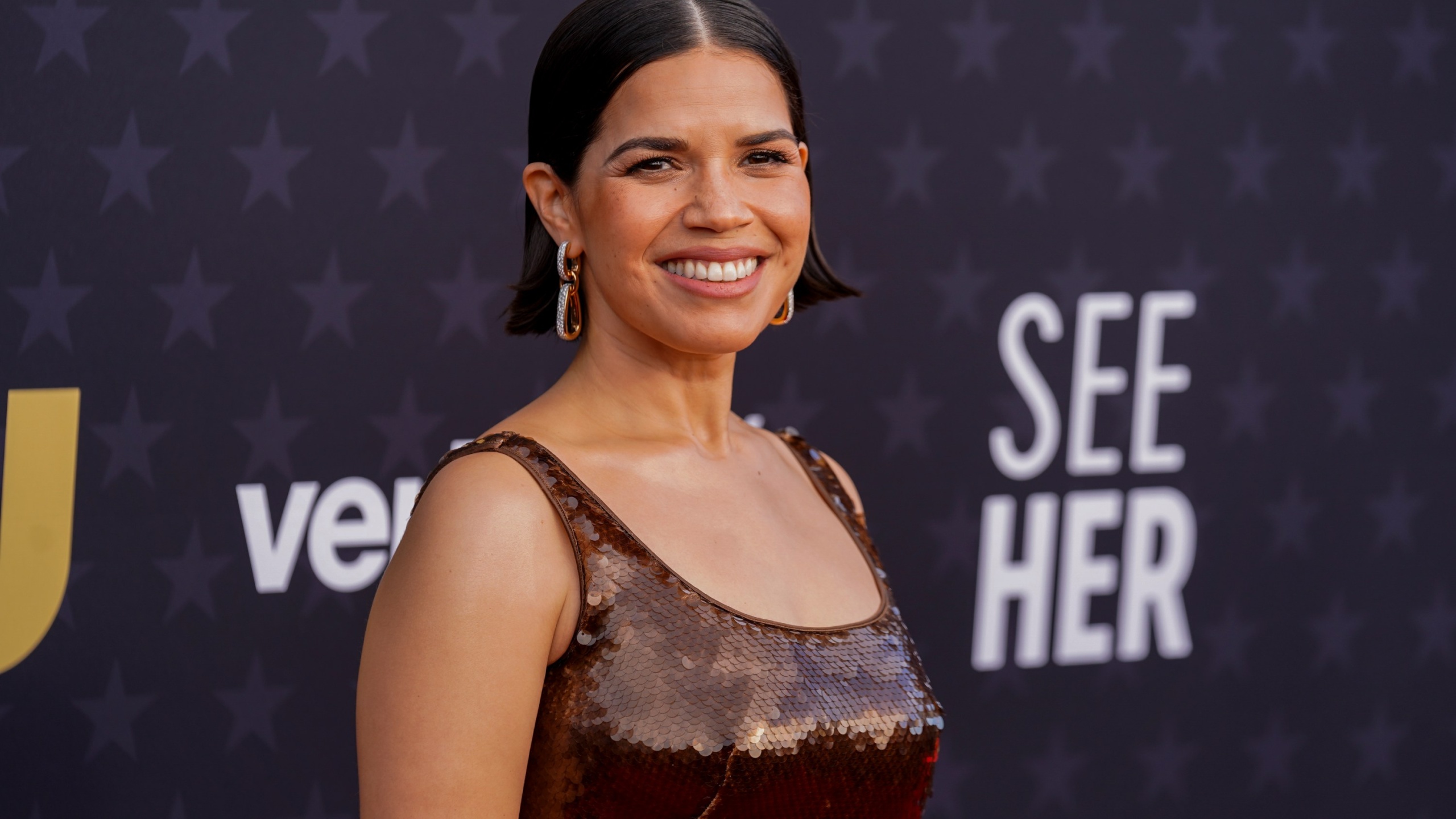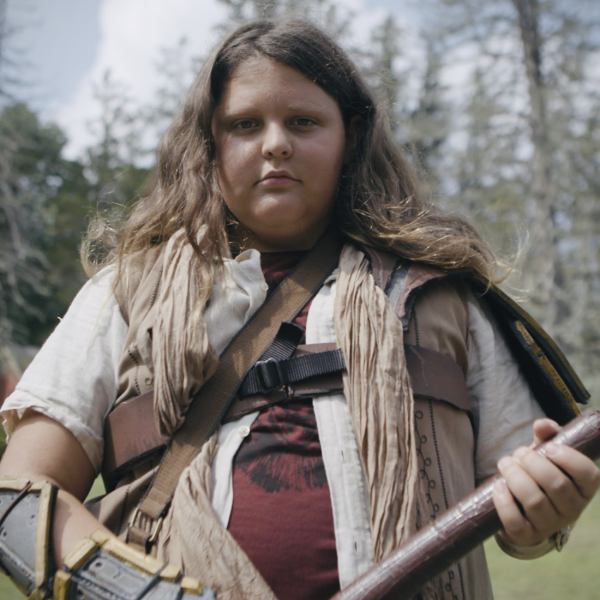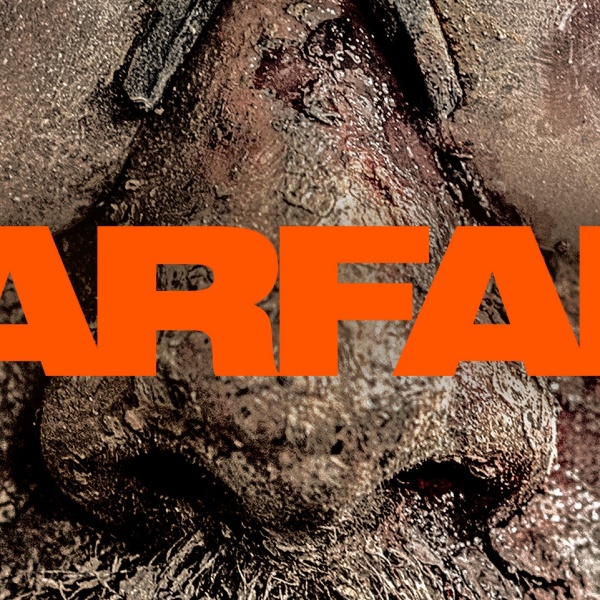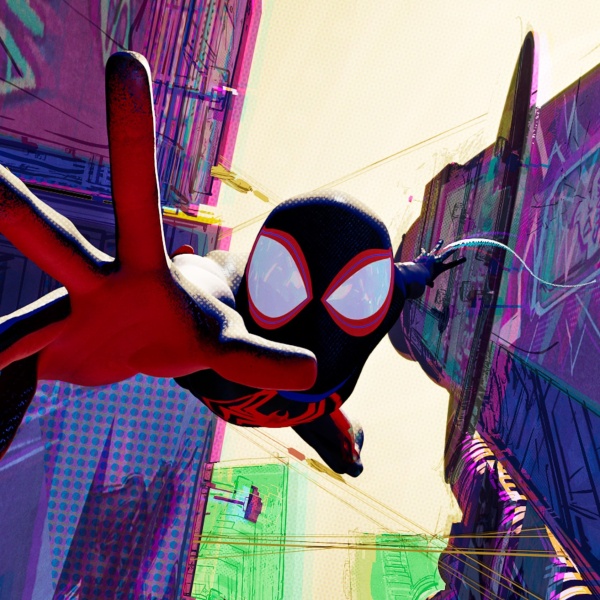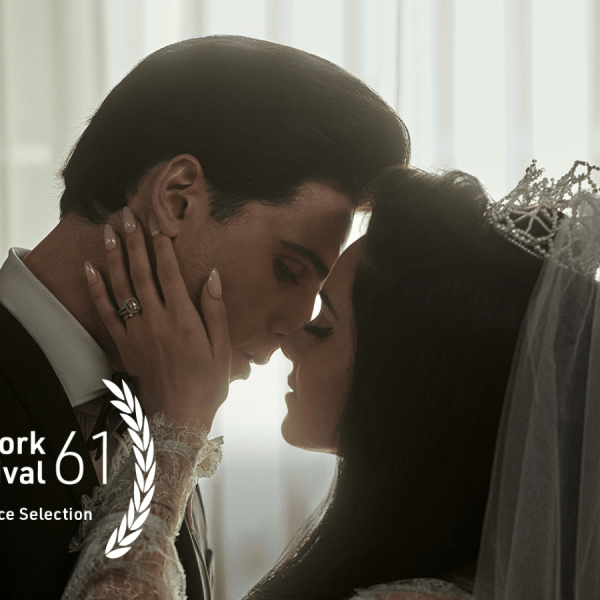
Prior to “Barbie,” a critique of Greta Gerwig’s filmmaking was that the protagonists she used as proxies for her artistic sensibilities fit a very specific, Saoirse Ronan-shaped package. However, what has become the most bit of dialogue the two-time screenplay Oscar nominee has written, a monologue so powerful that it can deprogram victims of the patriarchy worldwide, is performed by star that history would suggest would never had gotten the opportunity to even be in a “Barbie” without Gerwig explicitly making the character Latina, and courting her for the role.
“On a personal level, I’ve never had a director, an Academy Award-nominated director, call me and say, ‘I’ve written a role for you,’” said America Ferrera, who plays Gloria in the Warner Bros. Pictures blockbuster, to IndieWire over tea inside a hotel restaurant in Beverly Hills. “[Gerwig] wrote the role Latina, but there was really nothing about it that is stereotypically Latina. She’s not undocumented. She doesn’t have to speak Spanish. She’s not a maid or a housekeeper. She’s just invited to the party in a meaningful way — and in a way that we don’t often get to show up to the party.”
Though “Barbie” more than delivers on its titular character, with Margot Robbie in the lead as the stereotypical version of the beloved doll, Ferrera has emerged as a dark horse Best Supporting Actress contender for playing a Mattel employee with a existential connection to the pop cultural icon, and speaks in a way that calls to mind Gerwig’s own past acting performances. “I think, in a lot of ways, there’s a lot of Greta in Gloria,” said the recent #SeeHer Award recipient at the Critics Choice Awards. “You have to ask her, but I think that Gloria in large part is her perspective. It definitely resonated within our conversations. It was like ‘It’s the real human woman. It’s the mom. It’s the person who is creative and has something to say, and just wants to say it.’ And in a lot of ways, her longing was very much Barbie’s longing. Barbie’s longing to be part of making meaning, instead of being the thing that’s making it hard.” She added, “Gloria is the stand-in for real human moments. And Greta is a real human woman.”
Sipping herbal tea to mitigate a cough, Ferrera expands on what impressed her about Gerwig, using props from the table to emphasize her point. “She could probably tell a story about this teapot, and find, as she says, the sacred in it; and find a way to help you understand how you needed this in your life, and you didn’t know it,” said the actress. “And it’s challenging all of us to look in a place where we normally wouldn’t look for the inspiration and for the heart, and for the soul, and for the art.”
In preparation for Gloria’s centerpiece monologue in “Barbie,” Ferrera and Gerwig found inspiration in resources the film scene itself would soon inspire. “We shared articles, and TV episodes, and memes, and TikTok videos that were related to the monologue. That felt like the spirit of it, the soul of it, the idea behind the monologue that we saw bubbling up in the culture all around us. And it was, ‘This, right? It’s this, it’s this,’” she said.
It was only when they were set to film the climactic scene that it occurred to Ferrera to ask the director “Do you want this to be funny?”
Gerwig’s response was “I want you to play it, and I want you to find it, and I want you to do what feels true to you,” she said. “That was a little nerve-racking because outside of that monologue, my experience of Greta was that she heard everything in a very specific way. That she was like, ‘It’s this,’ or ‘Go faster.’ It’s ‘This is how I hear it,’ which is really wonderful as an actor to have a director who knows exactly what they want to hear, but this was different, and so I trusted her deeply.”
Ferrera was prepared to do as many varied takes of the two and a half minute scene as needed to nail what would be true to the overall tone of “Barbie.” “We did it a bajillion times. There is no official number. It felt like 30 to 50 times over the course of two days. The poor crew and entire cast knew every word of it,” she said. “I had a lot of time to put it in my body and to play with it, and to follow it moment-to-moment. And sometimes it would lead to laughter, and sometimes it would lead to tears, and sometimes it would lead to rage, or dejection, and exhaustion. And I did it all the ways that I could find, and then I was done. I got it out of me. I did it. And then what you see was Greta’s choices about what made sense for the movie.”
As production on “Barbie” wrapped, Ferrera said, “I know it’s not the most humble thing to say, but I felt like it was going to change the world.” And as the highest grossing film of 2023, and a major contender this awards season, it has. “It’s changed the game for how we think about women making movies, and what movies about women can achieve, and do, and be in the world. And also just a win for originality, a win for boldness,” she said.

Ferrera, who made history as the first Latina to ever win the Emmy for Outstanding Lead Actress in a Comedy Series for her work in “Ugly Betty,” has recently been at work on her feature directorial debut for Netflix, “I Am Not Your Perfect Mexican Daughter.” As a filmmaker herself, her experience making “Barbie” with not just actors at the top of their game, but decorated craftspeople at every level, has cemented the importance of bringing a unique perspective to any type of art.
“There’s so many different versions of this movie that could have easily been made, and passed, and probably still made enough money, and been easily dismissed as, ‘Oh, a pink fluffy thing for girls who like Barbies,’ and [then] forgotten about. But what Margot and Greta set out to do, was to take something that a lot of people in our culture — by the way, including myself — would’ve dismissed as, ‘A Barbie movie? What’s the value in Barbie? What is there for us to talk about in Barbie?’ And I think that that’s an incredible magic act and an incredibly creative act,” said Ferrera.
Again, as a Latina actress, her experience with being offered roles has for the most part been, “We’re usually invited in to put our despair and our trauma on a story, not to get to be the heroes of the story. Not to get to be a part of the fun,” said Ferrera. “It filled my soul to get to be invited to the [‘Barbie’] party, and to get to have fun. It’s healing for us to see ourselves in those roles. That we aren’t just our pain. We aren’t just our oppression and the fight. We also get to show up in our joy.”
